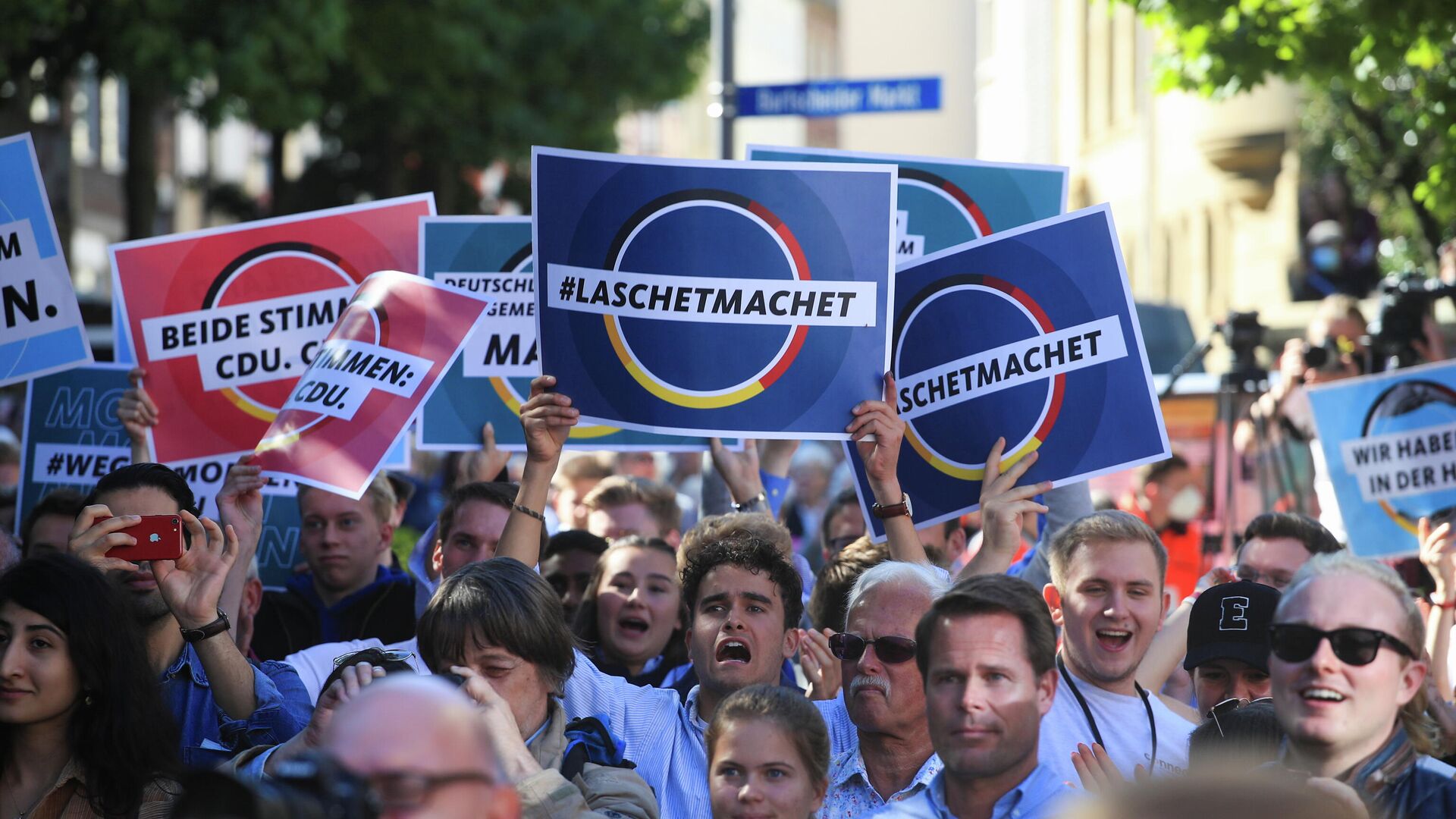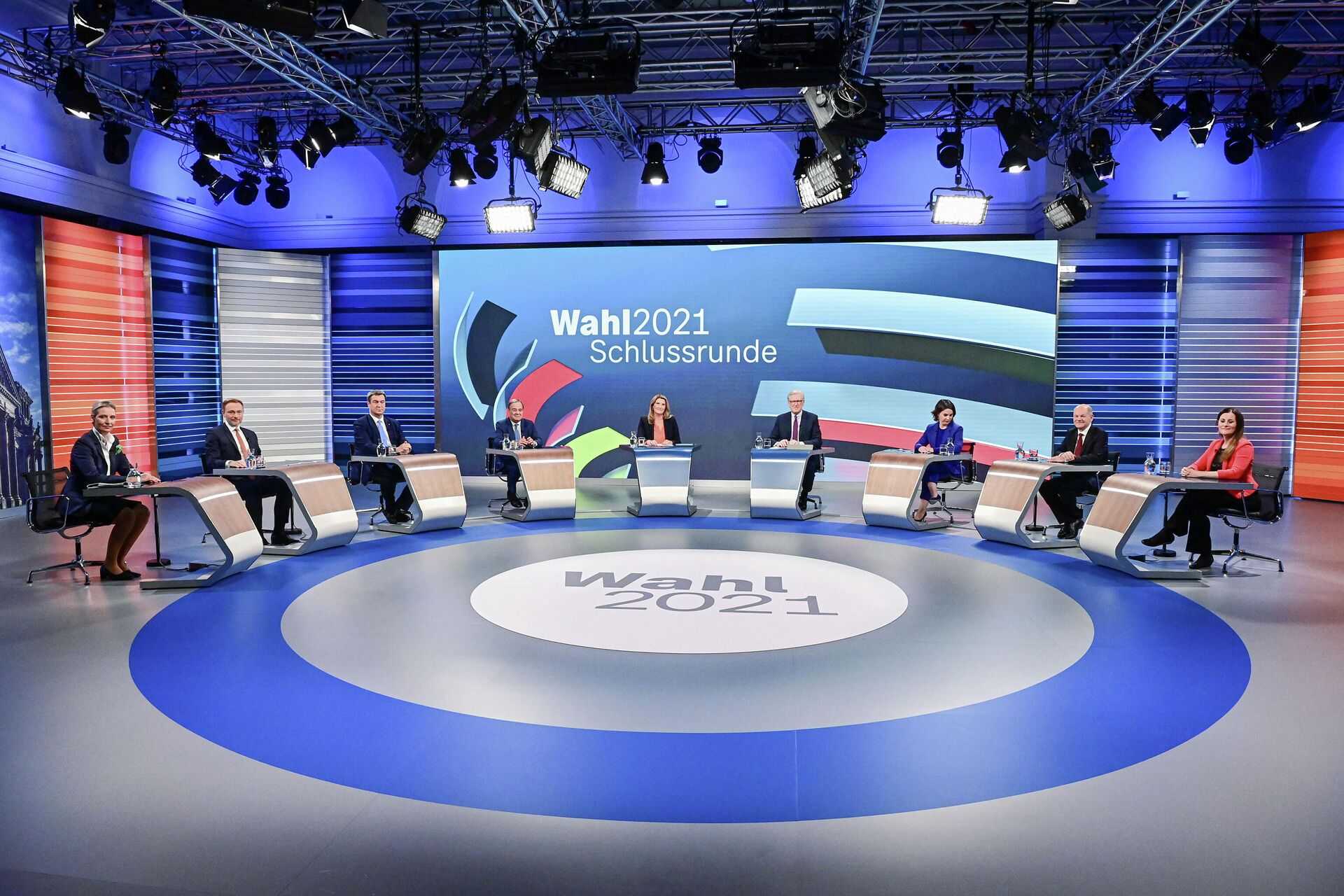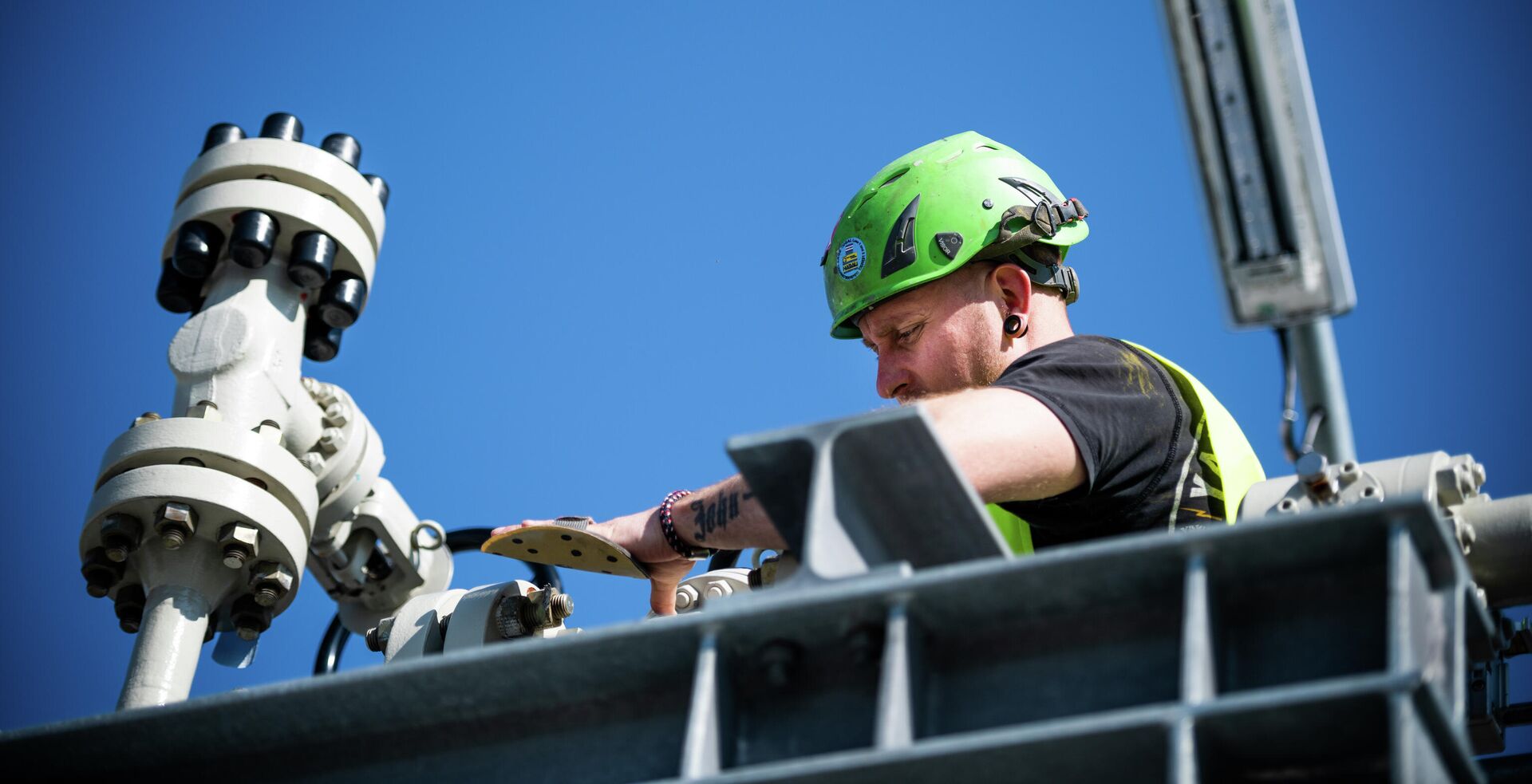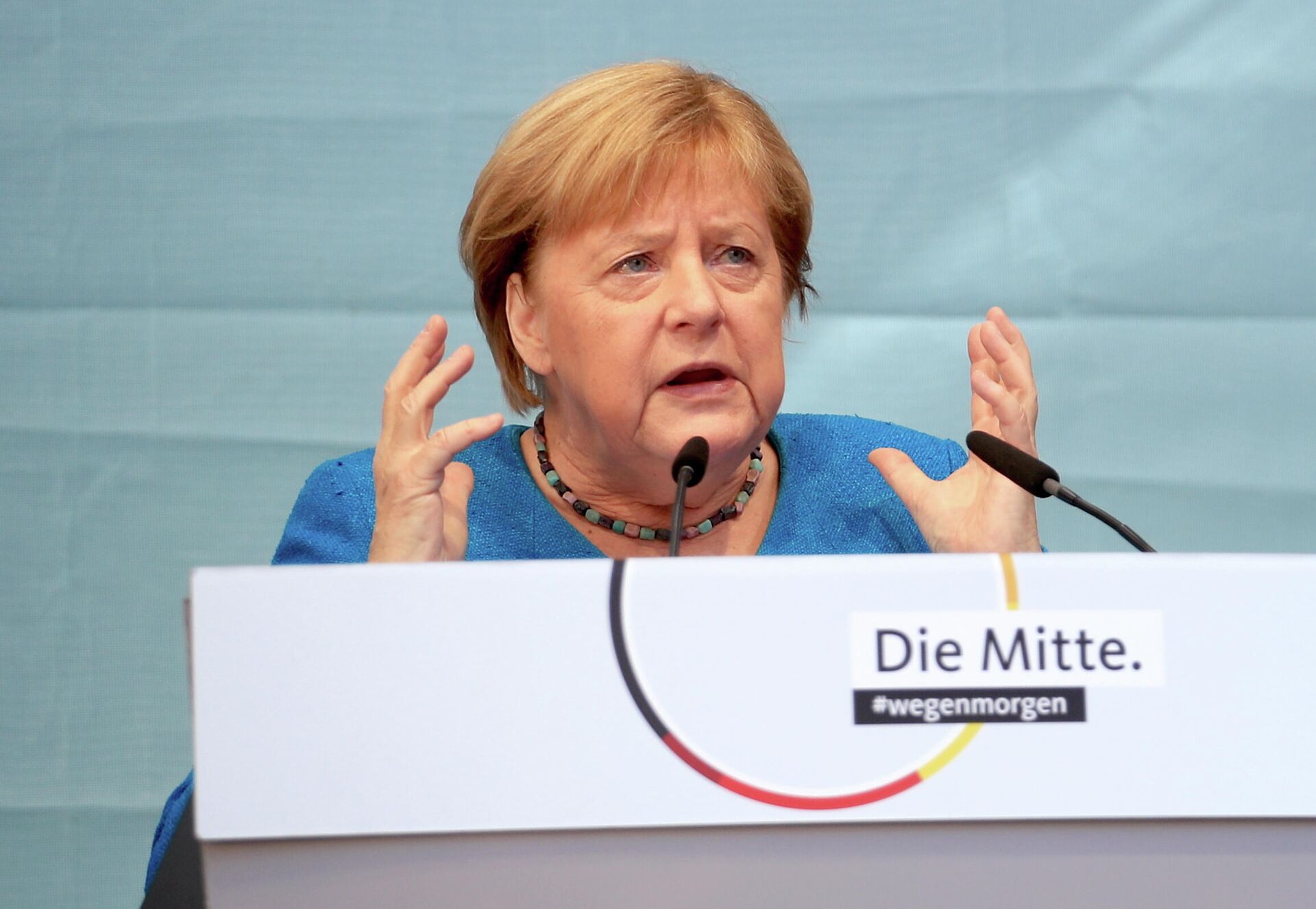German Voters Going to Polls in Election That Marks End of Merkel's 16 Years as Chancellor
00:00 GMT 26.09.2021 (Updated: 10:57 GMT 11.03.2024)

© REUTERS / WOLFGANG RATTAY
Subscribe
MOSCOW (Sputnik) - Germans are heading to polling stations on Sunday to participate in a first general election without outgoing Chancellor Angela Merkel on the ballot since 2005, which could mean ushering in a new political age in the country.
Procedure
The election will decide the composition of the 20th Bundestag, Germany's lower house, which will pick the chancellor, who, upon having been officially approved by the president, will form a new government.
While the voters will not be obligated to present a vaccination certificate or a negative COVID-19 test to access polling stations, personal protection and hygiene guidelines will be an important part of this election.
The voting will be held in two stages. With the first vote, the elector chooses a candidate from a single-member constituency, and with the second vote, the elector chooses a party.
A total of 299 seats will go to the candidates who win in single-member constituencies. The rest are to be distributed among the parties that have overcome a 5% threshold.
The Bundestag officially has 598 seats, although that number can fluctuate due to the parliament system. That is why the 19th Bundestag had 709 members.
Participants
The main parties that vie for power in the elections are the bloc of Christian Democratic Union and Christian Social Union (CDU/CSU), headed by Merkel's successor and premier of North Rhine-Westphalia, Armin Laschet, the Social Democratic Party (SPD), led by the vice chancellor and finance minister, Olaf Scholz, the Greens, the Free Democratic Party (FDP), the Left Party, the Alternative for Germany (AfD), and the Left party.
The main intrigue of the Sunday elections is whether or not the conservative CDU/CSU alliance will be dislodged by the SPD, which has maintained a small lead in the polls ahead of the election.

Candidates for the general election Alice Weidel, AfD, Christian Lindner, FDP, Markus Soeder, CSU, Armin Laschet, CDU, Annalena Baerbock, Greens, Olaf Scholz, SPD, and Janine Wissler, Die Linke, attend a final televised debate ahead of the election in Berlin, Germany September 23, 2021
© REUTERS / Tobias Schwarz
So far, Laschet has failed to replicate the Merkel magic that had served Germany's conservatives so well for 16 years. For example, while German President Frank-Walter Steinmeier was expressing sympathy for flood victims during the July crisis in North Rhine-Westphalia, Laschet was caught on camera joking and laughing with several people in the background.
Meanwhile, Scholz has his share of problems, such as the prosecutors' recent raid on the finance ministry after its financial intelligence unit FIU was found to have withheld bank reports on suspicious transactions. This led to Scholz being grilled by lawmakers on Monday. Nevertheless, the timing of the scandal raised eyebrows as it happened on the eve of a momentous election.
Russia & Nord Stream 2
Whoever becomes the next German chancellor will have to juggle a plethora of responsibilities, not the least of them Berlin's relationship with Moscow, which is heavily tied to the issue of gas, especially now that the Nord Stream 2 pipeline is completed and ready to be launched.
The pipeline caused no small amount of grief to the Merkel government, which had to maneuver between its arrangements with Moscow, Washington's desire to stop the project, and domestic politics.
Laschet has already voiced his support for starting gas supplies via the pipeline, citing the economic nature of the project. However, he did threaten to put a stop to the project in case it caused financial damages to Ukraine, a traditional middleman between Russian gas and Europe.

A Nord Stream 2 employee stands on a platform in the Nord Stream 2 Baltic Sea pipeline's receiving station, where six and a half million cubic meters of natural gas per hour will be processed and delivered to downstream pipelines at the right pressure, in Lubmin, Germany
© Sputnik / Dmitrij Leltschuk
/ Laschet's electoral nemesis Scholz is on the record supporting the Nord Stream as well, while also warning of consequences of alleged use of the pipeline to undermine Kiev.
Meanwhile, Annalena Baerbock, the leader of the Greens, has taken a different tack, criticizing Laschet for being allegedly too nice to Russia and calling for the construction of Nord Stream 2 to be halted. Recently, Greens leader accused Moscow of not doing enough to help energy-strapped Europe fill its gas storage amid skyrocketing gas prices.
In contrast to the Greens, the AfD leadership not only backs the new gas pipeline but also supports the lifting of Western sanctions against Russia, emphasizing the importance of trade and dialogue between the two countries.
Uncertain Future
The one thing that hangs over the election is the conspicuous absence of Merkel who announced her plans to retire from politics in 2018.
Whoever ends up replacing her — Laschet and Scholz being the prime candidates — an epoch in German political life is coming to an end, posing inevitable questions of what would come afterward and how well the country's political system is equipped to handle it. Some, like German political scientist Alexander Rahr, predict political disruption and instability of future governments.

German Chancellor Angela Merkel together with North Rhine-Westphalia State Premier, Christian Democratic Union (CDU) party leader and candidate for chancellor Armin Laschet, attends a rally ahead of the September 26 general election , in Aachen, Germany, September 25, 2021.
© REUTERS / WOLFGANG RATTAY
"Two parties are not enough to create a government, and three are needed. This does not bear stability. I cannot imagine a coalition agreement between the Greens and the Free Democrats, but they will have to negotiate. I forecast that such governments of three parties will collapse very quickly, and this will be weakening the German political system," Rahr told Sputnik, comparing the current situation to that of the Weimar republic.
With such concerns in mind, the whole world is watching Germany march into the post-Merkel future and trying to discern potential repercussions both at home and abroad.


